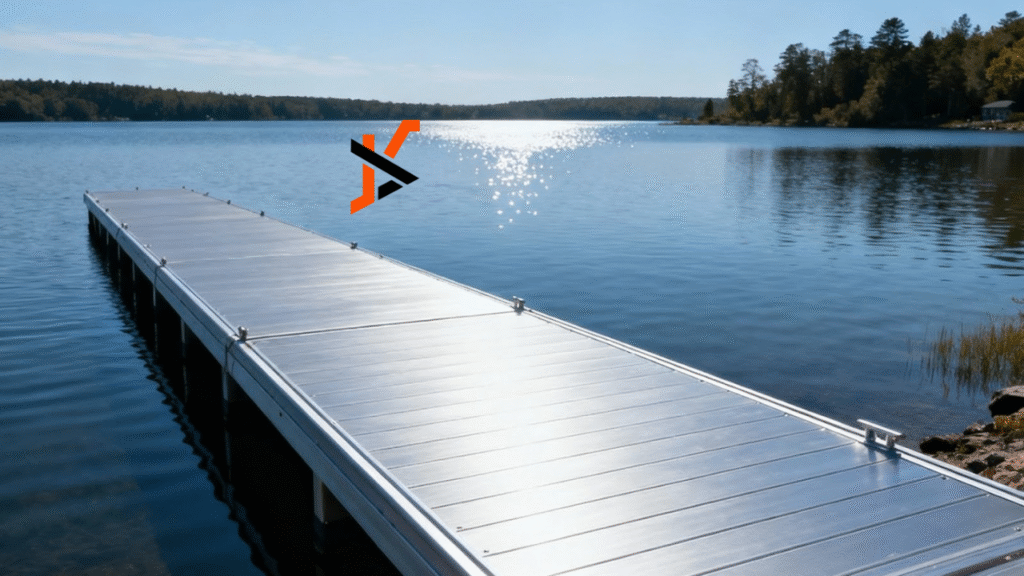As coastal communities and marina developers look toward more sustainable solutions, aluminum docks are rapidly emerging as the future of waterfront infrastructure. With climate challenges, rising water levels, and growing environmental awareness, builders and engineers are rethinking traditional materials in favor of lightweight, corrosion-resistant alternatives that stand the test of time.
Why Traditional Dock Materials Are Fading
Wood and steel have long been the go-to choices for dock construction, but both materials come with significant downsides. Wood is susceptible to rot, warping, and pest damage, while steel corrodes easily in saltwater environments. The result? High maintenance costs, frequent repairs, and shorter lifespans — making them less suitable for modern marinas and waterfront projects.
Aluminum: A Smarter, More Sustainable Solution
Aluminum has quickly become the material of choice for today’s custom dock builders because of its unmatched combination of strength, sustainability, and flexibility. Unlike wood or steel, aluminum docks resist corrosion, require minimal upkeep, and are 100% recyclable — aligning perfectly with global sustainability goals.
According to the National Marine Manufacturers Association, the demand for eco-friendly aluminum docks has surged as waterfront developers seek long-term, low-impact solutions that don’t compromise performance.
Benefits That Go Beyond Durability
- Lightweight yet strong: Aluminum structures are easier to install and transport without sacrificing stability.
- Corrosion-resistant: Ideal for both freshwater and saltwater environments.
- Low maintenance: No need for frequent sealing, staining, or painting.
- Environmentally responsible: 100% recyclable, reducing environmental impact.
- Customizable: Aluminum docks can be designed in various shapes and sizes to fit residential, commercial, or marina applications.
How Technology Is Shaping the Future of Dock Design
Modern dock builders are embracing CAD design, modular systems, and advanced coatings to enhance performance and safety. These innovations allow for greater customization while reducing installation time and long-term maintenance costs — ensuring that docks remain safe and functional even under extreme weather conditions.
Conclusion
Waterfront construction is entering a new era — one that prioritizes durability, efficiency, and environmental stewardship. Aluminum docks exemplify this shift by delivering long-lasting, sustainable solutions for communities and businesses worldwide. With leading custom dock builders setting new standards in marine engineering, the future of dock construction looks lighter, stronger, and greener than ever before.As the conversation around climate adaptation and sustainable development gains momentum, aluminum docks are proving to be more than just a trend—they’re a long-term investment in resilient infrastructure. Coastal municipalities, marina operators, and even private homeowners are recognizing the value of choosing materials that can withstand environmental stressors while reducing long-term costs.
One of the key advantages of aluminum docks is their modular design capability. Sections can be added, removed, or reconfigured with relative ease, making them ideal for evolving waterfront needs. Whether adapting to seasonal water level changes, expanding marina capacity, or upgrading aging infrastructure, modular aluminum systems offer unmatched flexibility.
In addition, aluminum docks contribute to safety and aesthetics. Non-slip decking options and integrated lighting systems enhance user experience, while clean, modern designs elevate the visual appeal of the waterfront. These features make aluminum docks especially attractive for tourism-focused areas and upscale residential developments.
Furthermore, aluminum’s resistance to UV damage ensures docks maintain their structural integrity and appearance over time, unlike wood, which can fade and degrade. Combined with the minimal maintenance requirements, this leads to significant cost savings over the life of the structure.
As environmental regulations tighten and public expectations shift, aluminum docks stand out as a future-ready solution for sustainable waterfront development.

